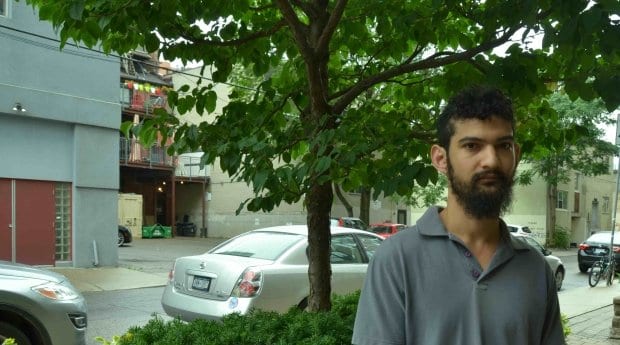A Toronto artist who called on ragga soca star Bunji Garlin to apologize for homophobic lyrics in one of his songs is still waiting for his apology — but his protest has had positive ripples elsewhere in the Caribbean community.
Adam Williams, a ceramic artist who immigrated to Toronto from Trinidad in 2011, raised concerns with both Toronto City Council and the organizers of the Scotiabank Caribbean Carnival, popularly known as Caribana, over Garlin’s 2005 song “Blaze de Fire.”
In it, the Trinidadian musician sings that he’s the fire man and asks listeners to get the fires out of control. He then lists a variety of people to “bun,” including drug users, thieves and liars, and finishes with the line “Bun some of dem big funny man who taking dem man over gyal.”
Williams previously told Xtra that he believes that the song, while not meant to be taken literally, creates a dangerous and slippery slope because it equates gay men with criminals. However, while he wants an apology, he had no interest in stopping Garlin from performing at any of his engagements in Toronto.
“Asking for a ban would have been to me an act of revenge,” Williams says. “Asking for an apology would be an offer of reconciliation.”
Garlin was scheduled to perform at the Scotiabank Caribbean Carnival on Aug 2, but his appearance was cancelled because of inclement weather. He did perform at several other events over the Civic Holiday weekend.
After raising his concerns with both Toronto City Council and Scotiabank Caribbean Carnival management, Williams met with members of the festival management committee Aug 1, including CEO Denise Herrera-Jackson. According to Williams, Herrera-Jackson offered to request that Garlin publically apologize for the lyrics in the song. She and the committee also reportedly agreed to start work on a set of anti-discrimination principles that would guide the future booking of artists performing at Caribana. Herrera-Jackson has not yet responded to requests for comment on this story.
Joe Mihevc, the city council liaison for the festival, was not at the meeting but says he’s aware of its results and is pleased with them. “My opinion: this is totally acceptable from my point of view, and this has gone beyond what was minimally required,” he says.
Earlier, Garlin sent Mihevc’s office a signed statement that reportedly speaks in generalities about how he respects all people. At press time, the City of Toronto’s Equity, Diversity and Human Rights division was still reviewing the letter and was not yet ready to release it. Representatives from Garlin’s management company declined to comment or confirm whether Garlin would issue a second statement.
However, after sharing the story within his own social circles, Williams has noticed mostly positive feedback. Though the song did not gain much publicity when it was released in 2005, Williams hopes that now people can decide whether they want to hold Garlin accountable or not. “I kind of feel they didn’t decide when the song came out; now you can decide again,” he says.
Williams will also continue to seek a public apology from Garlin. “An apology is needed here,” he says. “Those [lyrics] were not riddled in metaphor and difficult to decode. They were violent and they were homophobic, and some kind of accountability needs to happen here.”


 Why you can trust Xtra
Why you can trust Xtra


